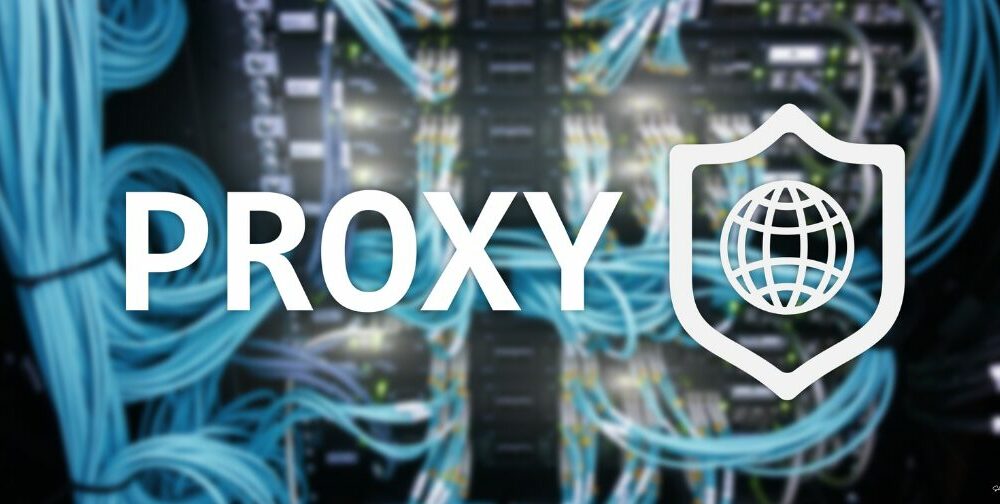Shared Proxy: A Cost-Effective Solution for Seamless Online Navigation

Internet privacy and security have become essential concerns for individuals and businesses alike in this rapidly evolving digital landscape. With an ever-increasing reliance on web-based activities, whether for personal use, corporate strategies, or content consumption, the demand for reliable, secure, and cost-effective proxy solutions has never been higher. In this context, the concept of shared proxies has gained significant traction, offering a versatile yet affordable alternative to dedicated proxy solutions. This article looks into the world of shared proxies, highlighting their utility, applications, and relevance in today’s market, with particular emphasis on Datacenter Shared HTTP Proxies, which have emerged as the go-to option for users seeking cost-effective and efficient online navigation.
What Is a Shared Proxy?
A shared proxy is a type of proxy server that allows multiple users to share the same IP address while accessing the internet. This contrasts with dedicated proxies, where each user is assigned a unique IP address. In shared proxy setups, the traffic from several users is routed through the same server, creating a cost-effective solution for individuals or businesses looking to mask their IP address, enhance their online privacy, and bypass geographical restrictions without incurring the higher costs associated with dedicated proxy services.
The Core Benefits of Shared Proxies
Shared proxies offer several advantages, particularly for users who do not require the full resources of a dedicated proxy. Some of the key benefits include:
1) Cost-Effectiveness: Shared proxies are significantly cheaper than dedicated proxies. Since multiple users share the same server resources, the cost is distributed among them, resulting in a much more affordable solution. This makes shared proxies an ideal option for small businesses, freelancers, or individuals with limited budgets.
2) Anonymity: By routing your internet traffic through a shared proxy, you can effectively mask your IP address. This adds an additional layer of privacy, preventing websites from tracking your real location or identity.
3) Bypassing Geo-Restrictions: Shared proxies allow users to access content that may be restricted based on geographical location. By appearing to browse from a different IP address, users can bypass country-specific blocks on streaming services, websites, and other online platforms.
4) Versatility: Shared proxies can be used for a variety of applications, from general web browsing and accessing restricted content to light web scraping and managing multiple social media accounts. Their versatility makes them a go-to option for a wide range of internet users.
Understanding Datacenter Shared HTTP Proxies
Among the different types of shared proxies available in the market, Datacenter Shared HTTP Proxies have emerged as one of the most popular and efficient solutions in 2024. Operating on the HTTP (Hypertext Transfer Protocol), these proxies are specifically designed to handle web browsing and other web-based activities.
How Datacenter Shared HTTP Proxies Work
Datacenter proxies, as the name suggests, are hosted in data centers, large-scale facilities that house servers and network infrastructure. Unlike residential proxies, which use IP addresses assigned to real residential internet connections, datacenter proxies use IP addresses provided by data centers. This allows for faster connections and higher availability, as data centers are typically equipped with high-speed internet and robust infrastructure.
When a user connects to the internet through a Datacenter Shared HTTP Proxy, their internet traffic is routed through a server in the data center. The shared nature of these proxies means that multiple users can use the same proxy server simultaneously, which reduces the overall cost for each user.
Advantages of Datacenter Shared HTTP Proxies
1) Affordability: One of the most significant advantages of Datacenter Shared HTTP Proxies is their cost. Since multiple users share the same IP address and server, the cost per user is significantly lower than other proxy types, particularly dedicated proxies. This makes them an attractive option for those navigating budget constraints.
2) Seamless Navigation: Despite being shared among multiple users, Datacenter Shared HTTP Proxies offer seamless navigation. The servers are optimized for general web browsing, allowing users to surf the web, access geo-restricted websites, and bypass content filters with ease.
3) Compatibility: Operating on the widely-used HTTP protocol, these proxies are compatible with most web browsers and applications. This ensures that users can enjoy a hassle-free experience without the need for complex configuration settings.
4) Anonymity and Privacy: While shared proxies are not as private as dedicated proxies, they still provide a level of anonymity by masking the user’s real IP address. This is particularly beneficial for users who want to protect their online identity without paying for more expensive proxy options.
5) Bypassing Geo-Restrictions: Datacenter Shared HTTP Proxies are particularly useful for accessing regionally restricted websites. Whether it’s streaming content from a different country or accessing services that are otherwise blocked, these proxies offer a reliable solution for bypassing geo-restrictions.
The Market Landscape for Shared Proxies in 2024
The global proxy market has witnessed substantial growth over the past few years, driven by increasing concerns about internet privacy, the rise of data scraping for business intelligence, and the growing need for bypassing geo-restrictions in an increasingly fragmented online environment. According to a recent report by Market Research Future (MRFR), the global proxy server market is projected to reach a value of approximately USD 2.5 billion by 2027, growing at a compound annual growth rate (CAGR) of 11.9% from 2023 to 2027.
This growth is largely attributed to the rising demand for proxy services across industries such as e-commerce, advertising, cybersecurity, and media streaming. Shared proxies, in particular, are gaining popularity due to their affordability and flexibility, making them a preferred option for individuals, small businesses, and companies with limited budgets.
Key Market Trends in 2024
1) Increased Adoption of Proxies for Web Scraping: Businesses are increasingly using web scraping techniques to gather market intelligence, monitor competitors, and optimize pricing strategies. Shared proxies, with their affordability and ease of use, are becoming a favored option for lightweight data scraping tasks, particularly for small businesses or startups that may not have the resources for more expensive proxy solutions.
2) Growing Demand for Streaming and Content Access: The global appetite for streaming content from platforms like Netflix, Hulu, and Amazon Prime continues to grow, and with it, the need for proxies that can bypass geo-restrictions. Shared proxies provide a cost-effective solution for users who want to access content from different regions without paying for a VPN or dedicated proxy.
3) Rising Awareness of Online Privacy: With high-profile data breaches and privacy scandals making headlines, individuals and businesses are becoming more aware of the importance of protecting their online identity. Shared proxies offer a budget-friendly way to enhance privacy by masking users’ IP addresses and shielding them from online trackers.
4) Shift Towards More Affordable Proxy Solutions: The post-pandemic economic environment has led many businesses and individuals to look for more affordable solutions for their online activities. As a result, shared proxies are seeing increased adoption due to their lower cost compared to dedicated proxies or VPN services.
Shared Proxies vs. Dedicated Proxies: Which One to Choose?
While shared proxies offer a range of benefits, it’s essential to understand how they differ from dedicated proxies to make an informed decision about which type of proxy is best suited for your needs.
Dedicated Proxies
A dedicated proxy is assigned exclusively to a single user. This means that the user has complete control over the proxy server and its resources, which results in higher performance, better security, and enhanced privacy. Dedicated proxies are ideal for tasks that require high levels of anonymity, such as large-scale web scraping, managing multiple social media accounts, or conducting sensitive online transactions.
Pros of Dedicated Proxies:
- Enhanced privacy and anonymity.
- Faster performance due to exclusive server access.
- Suitable for resource-intensive tasks like large-scale data scraping or managing multiple accounts.
Cons of Dedicated Proxies:
- Significantly more expensive than shared proxies.
- May offer more resources than necessary for casual users or small-scale tasks.
Shared Proxies
As discussed earlier, shared proxies are more affordable because multiple users share the same server and IP address. While this can lead to slower speeds during peak usage times, shared proxies are more than adequate for general web browsing, lightweight data scraping, and bypassing geo-restrictions.
Pros of Shared Proxies:
- Much more affordable than dedicated proxies.
- Ideal for lightweight tasks such as browsing, accessing restricted content, and social media management.
- Offer a reasonable level of privacy and anonymity.
Cons of Shared Proxies:
- Potentially slower speeds due to multiple users sharing the same resources.
- Lower levels of privacy and security compared to dedicated proxies.
- Not suitable for resource-intensive or high-security tasks.
Choosing the Right Proxy for Your Needs
When deciding between shared and dedicated proxies, it’s essential to consider your specific requirements and budget. If you’re an individual or small business looking for a cost-effective way to access restricted content, browse anonymously, or perform light web scraping, a shared proxy is likely your best option. On the other hand, if you require high levels of security, anonymity, and performance for more complex tasks, a dedicated proxy may be worth the extra investment.
Use Cases of Datacenter Shared HTTP Proxies
Datacenter Shared HTTP Proxies are particularly well-suited to a variety of use cases, making them a versatile and popular choice for a wide range of internet users. Here are some common applications:
1) General Web Browsing: For individuals who want to enhance their online privacy or bypass content restrictions, Datacenter Shared HTTP Proxies provide an affordable and efficient solution for general web browsing. These proxies mask the user’s IP address, allowing them to browse the internet anonymously without compromising speed or performance.
2) Accessing Geo-Restricted Content: Many online services, such as streaming platforms or news websites, restrict access to certain content based on the user’s geographic location. Shared proxies allow users to bypass these restrictions by appearing to browse from a different IP address, giving them access to regionally restricted content.
3) Social Media Management: Social media managers and digital marketers often need to manage multiple accounts across different platforms. Shared proxies can help avoid IP bans or restrictions by allowing users to manage multiple accounts without revealing their real IP address.
4) Lightweight Web Scraping: While shared proxies are not suitable for large-scale web scraping tasks, they are an excellent option for small businesses or individuals looking to scrape lightweight data from websites. This can include gathering competitor data, tracking prices, or monitoring reviews without overloading the proxy server.
5) Education and Research: Students, researchers, and educators often need to access restricted academic content or bypass institutional firewalls. Shared proxies provide a low-cost solution for accessing educational resources or conducting research from different locations.
When it comes to shared proxies, Changemyip offers one of the most reliable and cost-effective solutions available in 2024. Their Datacenter Shared HTTP Proxies are designed with affordability and versatility in mind, making them ideal for users navigating budget constraints while still requiring a reliable proxy service.
Key Features of Changemyip’s Datacenter Shared HTTP Proxies:
- Cost-Effective Pricing: Changemyip’s shared proxies are priced to be accessible for a wide range of users, from individuals to small businesses. With a commitment to offering small and fair prices, they ensure that quality proxy services are available without breaking the bank.
- Seamless Navigation: Optimized for web browsing, these shared proxies offer smooth and uninterrupted navigation, making them perfect for general browsing, accessing restricted content, and lightweight tasks like data scraping.
- Anonymity and Privacy: Changemyip’s shared proxies provide a reasonable level of anonymity by masking the user’s real IP address, allowing for secure and private browsing.
- Multiple User Access: Designed to cater to multiple users simultaneously, Changemyip’s shared proxies redefine shared efficiency without compromising on performance, making them an ideal solution for general web use.
- Versatility: Whether you need to bypass geo-restrictions, access regionally blocked websites, or perform lightweight data scraping, these proxies provide a versatile and cost-effective solution for a wide range of internet activities.
Conclusion
Shared proxies, particularly Datacenter Shared HTTP Proxies, are proving to be an indispensable tool for individuals and businesses looking for cost-effective online navigation solutions. With their ability to provide anonymity, bypass geo-restrictions, and perform lightweight tasks, shared proxies strike an excellent balance between affordability and functionality. As the digital landscape continues to evolve, shared proxies will remain a crucial part of the proxy market, offering users a versatile and budget-friendly way to enhance their online privacy and access the content they need.
Changemyip’s shared proxy services exemplify the benefits of this approach, providing high-quality, cost-effective solutions that cater to a wide range of users without compromising performance. Whether you’re a casual internet user, a small business, or an individual with budget constraints, shared proxies offer a reliable and efficient means of navigating the digital world.





